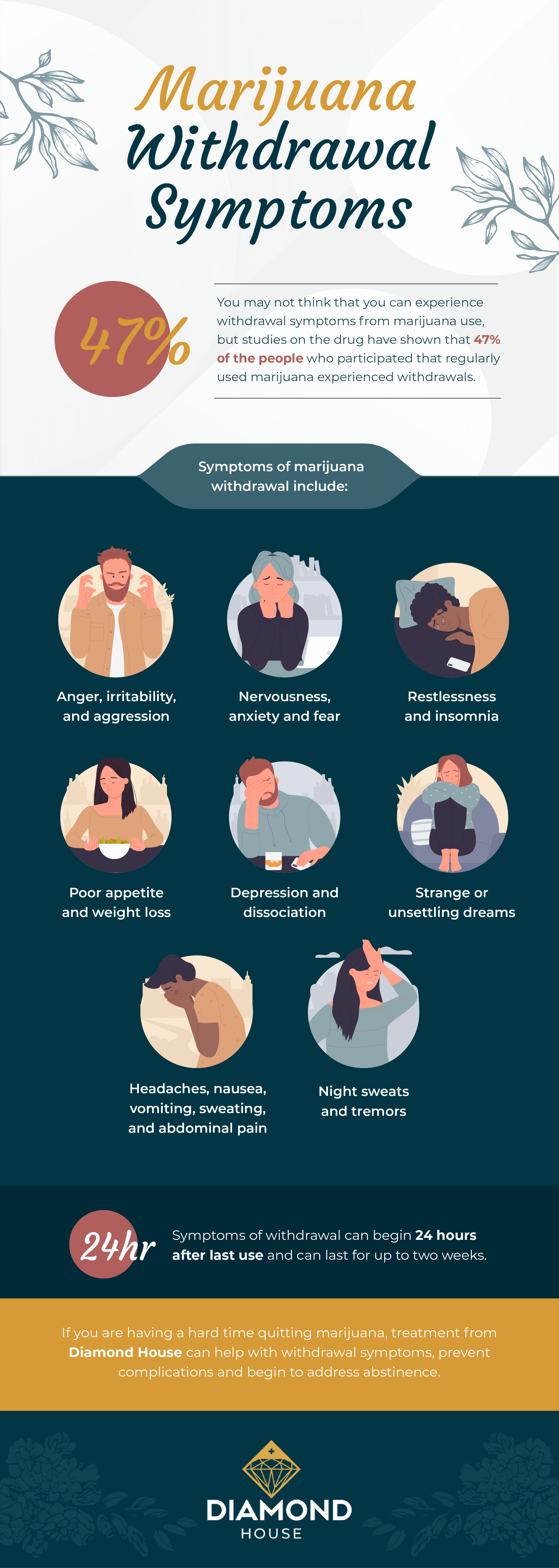Marijuana’s addictiveness can vary from person to person. In some states, it is legal for clinical use and is deemed less addictive than substances like heroin or cocaine — however, it can still lead to addiction, especially after regular, long-term use. Around 22%-30% of people who begin smoking marijuana will become addicted.
Some people are more prone to addiction than others. Genetics, environment, mental health conditions and your age of first use are all factors that can contribute to the likelihood of developing a marijuana addiction.









